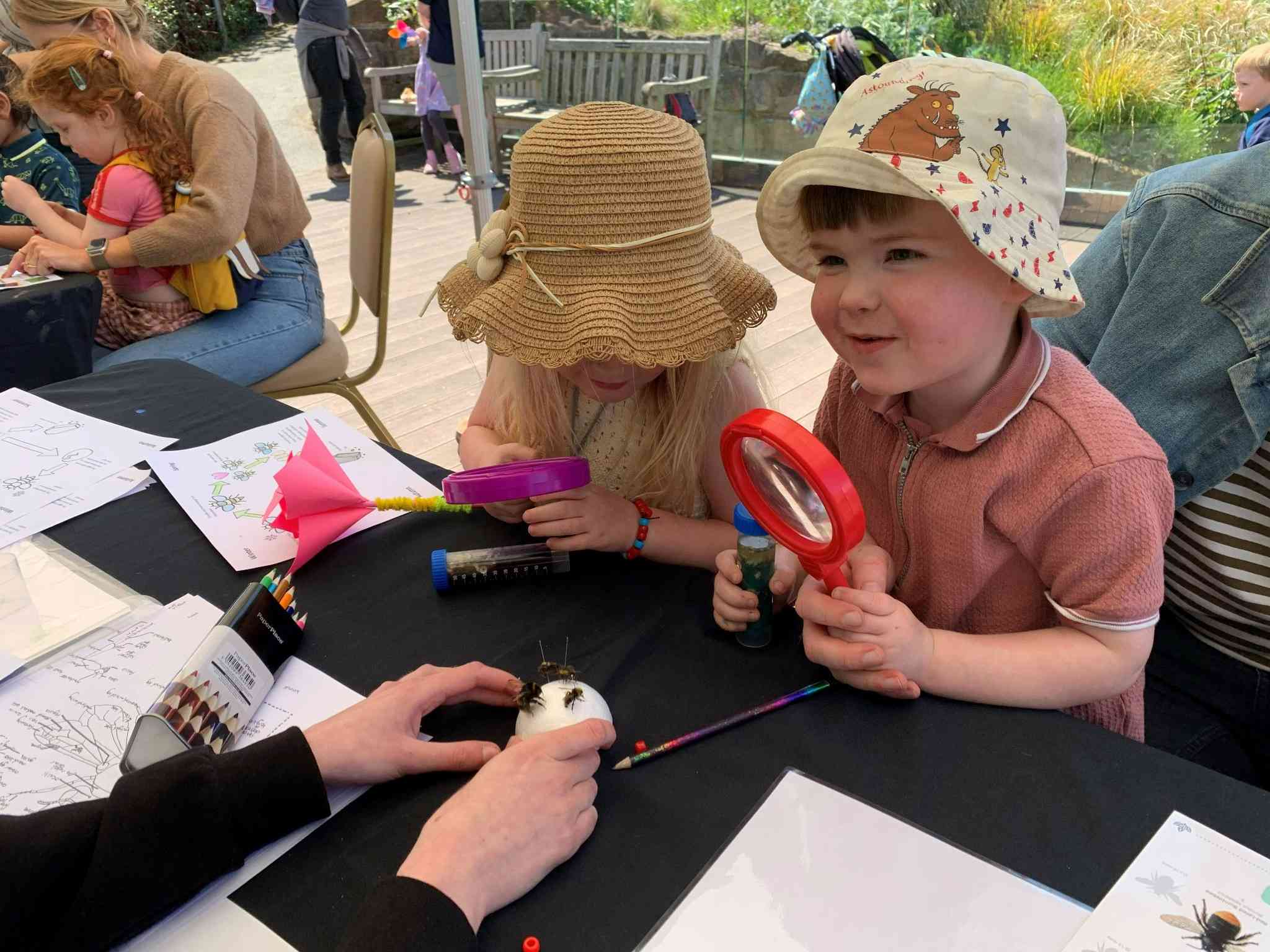
Last month, visitors to Ness Botanic Gardens delved into the deadly side of plants – with the launch of the new Poison Trail. To celebrate the launch of the trail, scientists from across the Faculty of Health and Life Sciences ran interactive activities and shared exciting research linked to our wonderful world, from poisonous plants to our favourite animals.
The Poison Trail was funded by our Faculty of Health and Life Sciences Public Engagement grants, led by Dr John Tulloch and working closely with the Learning team at Ness. The trail was designed to lead visitors of all ages around the beautiful gardens and learn about the poisonous properties of some familiar plants. Hydrangeas may be pretty but they contain the deadly chemical cyanide. Bees might love Echiums but touching them can irritate the skin and be toxic to many animals. And honey made from the nectar of certain colourful Rhododendron is known as ‘mad honey’ due to the hallucinations and sickness it can cause!
You’ll find these plants and many more throughout the garden by following the trail map—and along the way, you can enjoy interactive brass rubbing posts to help complete your journey. The trail can be picked up from the reception desk of Ness for just £1, with all proceeds going towards supporting the care of the gardens.
Meet the Scientists
To celebrate the launch of the Poison Trail, the Faculty Public Engagement team ran a Meet the Scientists event where visitors of all ages could meet and chat to scientists from across the Faculty working on research linked to the world around us and inspired by the array of plants at Ness. A team from the vet school brought along some (fake!) poorly animals so visitors could be a vet for the day. Indiana Jones from DEEB brought a range of bee specimens and chatted with visitors about bee behaviour. Visitors also had the chance to make a microbe, create their own poisonous potion, guess which plants are poisonous or not and make an origami flower to take home.
Over 180 visitors attended Meet the Scientists and 50 picked up the Poison Trail. The trail itself will be available until the end of August, with over 200 purchased so far!
Dr John Tulloch utilised research from the Vet School around which plants are poisonous to animals and humans alike, ensuring the trail was engaging and scientifically accurate. “It was brilliant to see so many people getting stuck into The Poison Trail at Ness Botanic Gardens. From spotting poisonous plants to creating their own brass rubbings, there was genuine excitement and curiosity from visitors of all ages. Events like Meet the Scientists show how science doesn’t have to stay in the classroom or the lab, whether it’s plants that can poison animals or the myths surrounding the plants, it all links back to the work we do at the Botanic Gardens, Vet School and across the university. It’s about sparking interest and starting conversations in unexpected places.”
Eleanor Hill, Learning Manager at Ness Gardens says: “We hope that this is the first project of many where researchers at the University of Liverpool collaborate with Ness Gardens. It was fantastic to share knowledge and expertise across the different areas, all learning from each other. We really enjoyed welcoming everyone to Ness as part of the Meet the Scientists event, we had fantastic feedback from visitors and hope we can accommodate this event again in the future. We are glad everyone is enjoying learning about some of the deadly plants at Ness, we plan to use the activities linked to poison plants again at future events, to continue sharing the great work from this project.”
If you would like to get involved with other Meet the Scientists events or run public engagement activities with Ness Gardens, drop the Public Engagement team a line at HLSEngagement@liverpool.ac.uk.